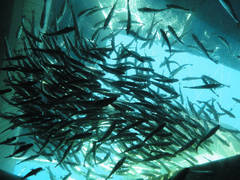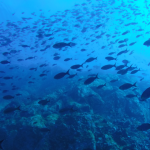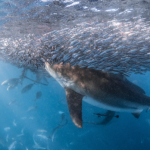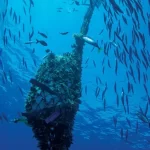Article Courtesy: unesco.org | Originally Published: 12/16/2016 | Please click here for original article.
Above: © Torey Kauth: Monitoring marine biodiversity will be key to delivering on sustainable development goals.
The Intergovernmental Oceanographic Commission (IOC), though its Ocean Biogeographic Information System (OBIS) and the Biology and Ecosystems Panel of the Global Ocean Observing System (GOOS BioEco) signed the collaboration Agreement on 4 December with the Marine Biodiversity Observation Network (MBON) of the Group on Earth Observations Biodiversity Observation Network (GEOBON).
According to IOC’s Executive Secretary, Vladimir Ryabinin, “monitoring the ocean’s biodiversity and living resources underpins protection of ocean ecosystems and contributes to sustainable development… the IOC through leading the Global Ocean Observing System and OBIS, is committed to coordinate and support the global effort of building the knowledge base for improved global governance and for a healthy ocean.”
Assessing ocean biodiversity and how it may change under possible future scenarios can help to more effectively conserve and sustainably use marine life. This is true both in ocean areas within national borders, in and the vast open ocean – the areas beyond areas of national jurisdiction – which cover 70% of the earth’s surface and 98% of Earth’s habitable living space.
A coordinated global ocean observing system would provide these kinds of information and knowledge, providing useful inputs to implement and track our progress towards achieving main global frameworks of action. Ocean biodiversity is a key component to the 2030 Sustainable Development Goals (specifically SDG 14), to the 2020 Biodiversity Aichi targets of the Convention on Biological Diversity (CBD), and to the second World Ocean Assessment.
“The oceans that connect us require an inclusive collaboration to monitor life and the marine environment – a huge task that no single organization could accomplish alone. It is very encouraging to coordinate with GOOS, OBIS and GEO to jointly develop a Global Marine Biodiversity Observation Network to improve the decisions made in ocean management for all of humankind,” said GEO Secretariat Director Barbara Ryan, reiterating the rationale behind the collaboration Agreement.
Systematic information and data on ocean biodiversity can also provide guidance to the current negotiations for a new legally-binding instrument under the UN Convention on the Law of the Sea to conserve and sustainably use marine biological diversity in areas beyond national jurisdiction.
At the national level, individual countries need historical and current information about ocean biodiversity to understand the potential of their own resources and to help preserve or improve the resilience of their coastal areas.
Among several axes of activity, the Agreement to build a global ocean system of marine biological and ecosystem observations seeks to enhance the scope and capacity of existing observations, identify essential ocean variables, standardize data collection efforts while implementing best practices and international standards, and enhance global capacity to ensure the continuity of these observation activities.
The Agreement commits to delivering the resulting information through an open access, integrated and quality controlled database will support management decisions and address relevant science and societal needs.
The Agreement is available here.
For more information, please contact: Ward Appeltans (w.appeltans@unesco.org)






